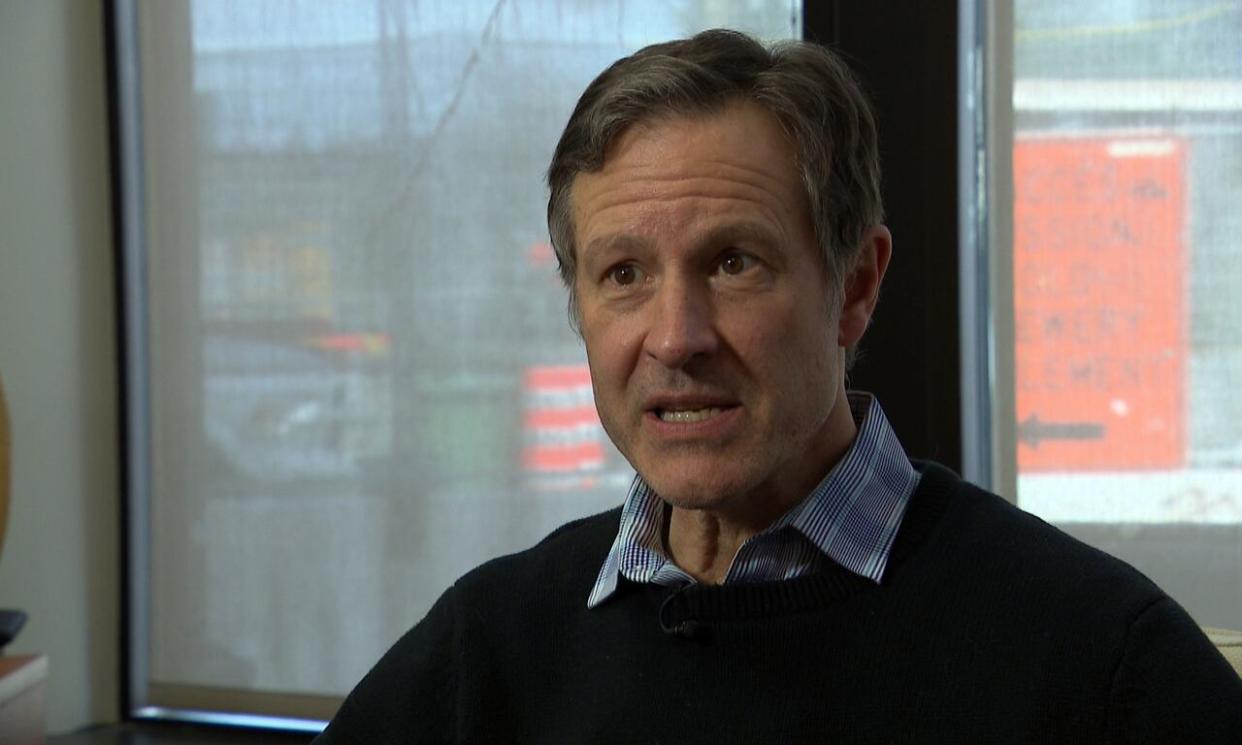New book, advocate suggest ways to prevent homelessness

The editor of a new book says it's time to rethink the way society combats homelessness because the current approach is not working.
James Hughes and the contributing authors to the book make the case to stop the problem before it starts.
Ending Homelessness in Canada: The Case for Homelessness Prevention looks at the root causes of homelessness and makes suggestions on how to stop it.
One of the most important steps is to give rent subsidies to non-profit organizations, Hughes told Information Morning Moncton on Friday.
Hughes, the CEO of Montreal's Old Brewery Mission and a former deputy minister in New Brunswick's Department of Social Development, said many landlords are no longer interested in being involved.
"Rent subsidies are no longer of interest to many landlords because they have so many alternatives. There's so much demand and that's really favouring the owners right now, favouring the landlords."
He said it's only natural that landlords would prefer to rent at full market value than to someone "who's got a backpack full of challenges such as the people we're supporting in most cases."
Give subsidies to non-profits: Hughes
The solution, said Hughes, is to give rent subsidies to non-profits who will ensure they're used to maintain affordable housing — and to build more.
The executive director of the New Brunswick Non-Profit Housing Association agrees.
Peter Corbyn, whose group represents 17 organizations who own and operate 6,500 units across the province, would like to see all rental subsidies given to non-profits.
By their very definition, not-for-profits are not motivated by profit, they're in it for the people they help, said Corbyn.
He said these organizations are led by volunteers, many of whom have dedicated decades of their lives to the cause "because it's the right thing to do."

Peter Corbyn is executive director of the New Brunswick Non-Profit Housing Association, which represents 170 organizations that own and operate 6,500 units in the province. (Submitted by Peter Corbyn)
Corbyn said "market landlords" pull out of rent subsidy agreements all of the time, which just exacerbates the problem for not-for-profits as those affected tenants are then added to the ever-growing list of people looking for affordable housing.
He said the province has to add capacity. He said New Brunswick "isn't even close to keeping up" with the influx of new people coming to the province, so losing existing affordable units has to be avoided.
With wages not keeping up to the increasing cost of living, Corbyn said "most people are one paycheque away from being able to pay rent and then they're evicted."
'Twin crises' at play
Hughes said "profound problems in housing markets" have contributed to a crisis in affordable housing.
"And it's really that crisis, the lack of affordable housing, that is driving the homelessness crisis. So we've got a twin crises going on right now."
He said the solution is to find a way "to preserve existing affordable housing while building new affordable housing at the same time."
Hughes said we've been losing 10 affordable housing units for every one new one built over the last decade.
He said housing has become the "new oil."

Hughes says landlords would naturally prefer to rent at full market value to a person than to someone 'who's got a backpack full of challenges, such as the people we're supporting in most cases.' (Josh Crabb/CBC)
"Ultimately, it has become a super-precious financial opportunity for very large, sometimes multinational investors to acquire, renovate and find a way to take an $800 apartment into the $1,500 or $1,600 levels," said Hughes.
"So that's just squeezing out people who are living in extreme poverty or in the worst cases, living in emergency shelters."
He said the correction "can only come through governmental action," by giving non-profit organizations control of existing affordable units so they can be preserved for the people who need them and not renovict existing tenants to turn them into higher-end apartments.
Who's at risk
Hughes said the book he edited explores the root causes — like the loss of affordable units — of homelessness.
He said a quarter of people coming out of provincial prisons are at risk of homelessness.
Domestic violence, mental health and the child protection system are also contributors.
He said about half of all young people on the streets of Montreal have come out of child protection services or foster care.
"That's the state's responsibility to ensure that doesn't happen," said Hughes.
"Discharging young people into the street can't be part of a government mandate and we have to absolutely ensure all of our governments — not just here in New Brunswick but in Quebec and right across the country — are accountable for ensuring that no one is discharged from child protection into an emergency shelter.
"It's just mind-blowing that that happens in so many cases."

